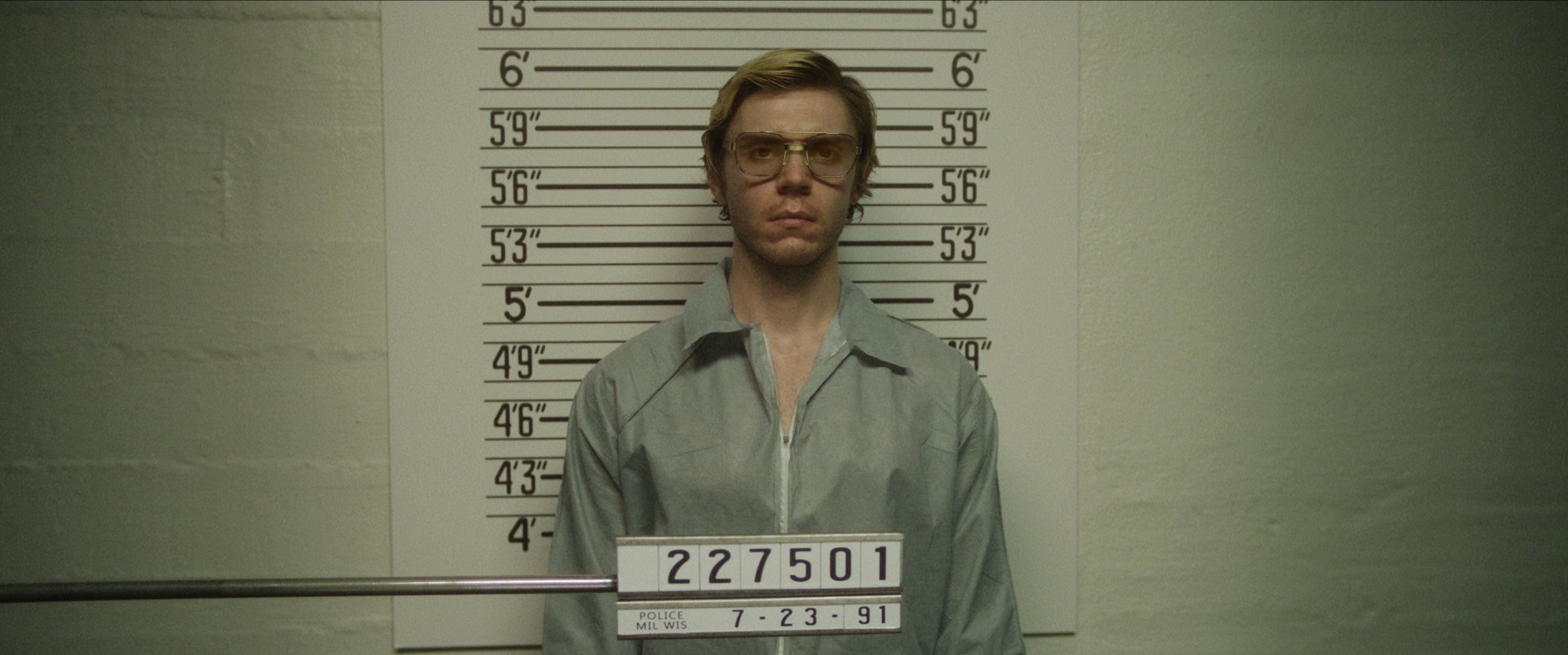Ryan Murphy — the man who literally made fucking Glee, widely seen as the master of modern, smooth-brained entertainment — has made a TV series about the serial killer Jeffrey Dahmer. Of course, audiences have lapped it up. The show, which bears the discombobulating title DAHMER – Monster: the Jeffrey Dahmer Story, claims to switch up other fictional interpretations of the man’s life by attempting to tell the story of his murders through the eyes of his victims. It touches upon how racism and police failures allowed him to evade responsibility and continue killing.
But while the show claims to place its victims as the forefront, giving them justice and a backstory rather than placing them as part of a body count, it fails on the first episode to do so respectfully. In it, a police detective sits opposite Dahmer’s father following his arrest, recalling what they found in his apartment. But as he reels off the items: a human head, two hearts, a man’s genitalia, torsos, skeletons, Murphy makes the decision to show it all. The intention is for us, the audience, to squirm in discomfort at the sight of Dahmer’s obscenities. But would a director with the victim’s best interests at heart request the meticulous recreation of their disemboweled, severed body parts, and then show them to a gawking audience on screen?
Following the show’s premiere, a clip went viral online: a side-by-side comparison of the rightfully incensed testimony given by Rita Isbell, the sister of murdered Errol Lindsey, at Dahmer’s trial, and Murphy’s version of it. The parallels are uncanny — Murphy wants you to think that he’s faithful — but surely the most respectful thing to do in the case of fictional TV series about serial killers and their victims is to simply not make them at all.
It was picked up on by @ericthulhu, reportedly Rita’s cousin. “I’m not telling anyone what to watch, I know true crime media is huge rn, but if you’re actually curious about the victims, my family (the Isbell’s) are pissed about this show. It’s retraumatizing over and over again, and for what?”
He went on to point out that, every time these shows are commissioned, every time they’re shoved on streaming services and receive a boom in viewership, that collective interest turns into news interest, which turns into reports cold-calling the families of victims for comment. The celebritification of serial killers continually threatens to drag victims from their loved ones and frame them not as people, but as side characters in a spicy crime show designed for our entertainment.
The true crime boom has a chokehold on media today. From podcasts to documentaries to TV series like this one, we are drawn towards the macabre en masse. The psychology behind it, who knows? But there’s an unwritten rule that should require these shows to handle the life stories of real people — ones who never asked to be embroiled in these events in the first place — with a basic level of human decency. While documentaries give us deeper insights into the real-life developments and grey areas in decades-old cases, show’s like Ryan Murphy’s tend to pull us further from the victims.
The very nature of narrative television channeling real life is that it turns those grey areas into creative playgrounds. No one knows for sure what happened in the room with Jeffrey Dahmer and his victims. To claim that these shows are siding with those victims is disrespectful to the relatives.


